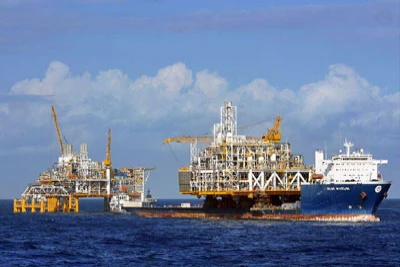After 13 years of independence, Timor-Leste has achieved tremendous progress since being ravaged by conflict – drawing down money from the Petroleum Fund and channeling it through the budget to meet pressing development needs. The effectiveness of this process is evident in the near-halving of infant and child mortality rates; a doubling of school enrollment and access to electricity; economic growth surpassing regional neighbors; increasing citizen participation and; the gradual strengthening of state institutions– all culminating in better lives for Timorese today.
As an oil exporting country, Timor-Leste has created a world class system for resource revenue management, including the Petroleum Fund that collects all petroleum wealth in financial assets that are invested off-shore, and a rule to sustainably draw revenues out of the Fund to finance the budget in a way that leaves the Fund intact for future generations. Oil export earnings have fed more than $16 billion into the Fund for future generations, and acts as a buffer for the economy against economic instability arising from volatility in oil prices and petroleum revenues.
The Petroleum Fund is managed in accordance with best-practice Santiago Principles, and has the potential to finance public policies that impact development and ultimately reduce poverty rates. However, relying on oil revenue is not without risk.
In 2014 global oil prices dropped unexpectedly by more than 45%, from $108.4 per barrel in June 2014 to $60.7 in December 2014, and have continued to fall since. To put this fall in perspective, only five times in the last 30 years have oil prices declined by more than 30% in a six-month period.
Petroleum has become an essential part of the economy – representing 99% of Timor-Leste’s export earnings, 80% of GDP, and 93% of total government revenues, a portion of which in turn will finance 85% of the FY 15 state budget.
At the same time, Timor-Leste has one of the lowest proven oil reserves among oil producers. Timor-Leste has already extracted 70% of oil, gas and condensates reserves from the two fields Bayu-Undan and Kitan currently under production. Another known field, Greater Sunrise contains predominantly gas , but remains subject to a dispute over production methods and maritime boundaries.
Despite this unique dependence, the impact of the recent fall in oil prices may be more limited that most think, thanks to:
- The Petroleum Fund and its associated fiscal rule
- Conservative oil price assumptions in the government’s economic and fiscal forecasts
- The fact that most of the petroleum in current fields have already been exploited.
However, the fall in prices has amplified already significant risks to Timor-Leste’s long term fiscal sustainability, as it continues to increase public consumption and investment well beyond domestic revenues.
A fall in oil prices to $62.4 per barrel in 2015 and $65.2 in 2016, could translate into a deficit on the overall fiscal balance of 3.7% of non-oil GDP – the first deficit since petroleum was first extracted in Timor-Leste. Before the fall in prices, the balance was expected to remain in surplus until 2020.
In the recently approved FY15 rectification budget to reflect the new structure of the 6 th constitutional government, planned spending was not reduced to reflect the fall in sustainable withdrawals from the Petroleum Fund. The FY16 offers an opportunity to bring spending back to the $1.3 billion level deemed sustainable before the recent fall in oil prices.
It is important to acknowledge the risks continuing dependence on resources. The critical challenge for Timor-Leste remains how to ensure the diversification of economic activity from public to private, and from petroleum into sectors such as agriculture, fisheries and tourism. The Petroleum Fund will continue to play a critical role in financing essential infrastructure and human capital development to facilitate this diversification, and this requires the highest quality of public spending.
Timor-Leste’s Prime Minister Dr. Rui Maria Araujo understands the vulnerability of his country’s economy to global oil price shocks. In a speech earlier this year he urged that it is more important than ever that Government investments are efficient.
The country’s Strategic Development Plan (2011 - 2030) contains the right policies for approaching the challenge of diversification through investment. It sets out a plan for achieving upper-middle income country status, with a secure, well-educated and healthy population, by 2030. However, but fully implementing the SDP may result in Timor-Leste having more infrastructure assets than many other upper-middle income countries.
An interesting article posted via the World Economic Forum is How to use cheap oil to create a sustainable future.
In it Chief Economist Kaushik Basu states, “With the correct approach, today’s oil-price volatility could turn out to be a critical turning point on the path toward a more sustainable future, characterized by shared prosperity and genuine progress on poverty reduction. The direction to take is clear”.
For the Government of Timor-Leste, this “critical turning point” may also serve as a reminder to the government of its good fortune in exploiting Bayu-Undan and Kitan oil fields during a period of high global oil prices, and may thus accelerate the return to more sustianble spending levels and withdrawals from the Petroleum Fund that the Ministry of Finance has long advocated. Finally it may require a better controlling of electricity metering system to allow all users to pay electricity, in order to end costly subsidies.
Following from Basu’s statement – how can we turn falling oil prices into a sustainable economic and social opportunity? And can we take this as an opportunity to reduce our reliance on oil and other fossil fuels? If we can, the future for Timor-Leste can be even brighter.



Join the Conversation